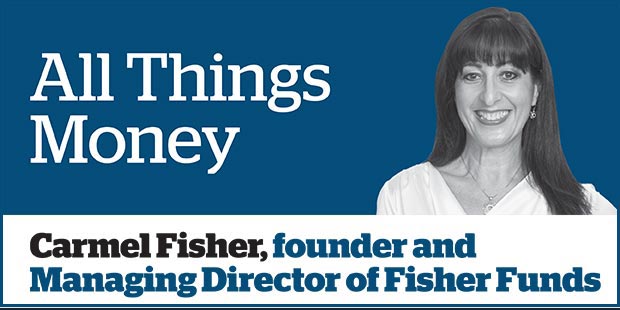Last weekend was wonderful, yet nothing particularly eventful or extraordinary happened. I got to Monday morning and thought: 'That was a great weekend, right up there with those other great ones that generally featured high activity, socialising, travel or culinary delights.'
Sometimes the ordinary can be extraordinary. So it is with investing.
Warren Buffett was quoted a long time ago saying: "It is not necessary to do extraordinary things to get extraordinary results." He meant you don't need to find the world's best growth company to generate great wealth. Instead, you can buy shares in ordinary companies - boring businesses that produce unexciting goods and services ordinary people use every day. The thing is, if people keep using their products every day and the company keeps a steady hand on the management, profits should keep coming and dividends should keep growing; over time they will compound into returns rather better than 'ordinary'.
Buffett's colleague Charlie Munger took the theory one step further when he referred to it as 'sit on your ass investing'. He said at the 2000 Berkshire Hathaway annual meeting: "If you buy a business just because it's undervalued then you have to worry about selling it when it reaches its intrinsic value. That's hard. But if you can buy a few great companies, then you can sit on your ass ... that's a good thing."
The whole idea of not having to do something extraordinary is one all investors should heed; yet it is easy to forget, particularly in stressful situations. We can all fall into the trap of wanting to hit the ball out of the park, or find the next Apple, rather than settling for a single run or a consistent but somewhat boring share market investment.
We can perhaps learn something from author Charles Duhigg who wrote the book The Power of Habit. He talked about success coming from training ourselves to stick to good habits (like investing well and infrequently) rather than defaulting to poor habits.
He gave an example of former NFL coach Tony Dungy who constantly missed out on promotion because of his coaching philosophy. Dungy believed the key to winning was changing players' habits so they stopped making decisions during a game and instead reacted automatically and habitually. He said: "Champions don't do extraordinary things, they do ordinary things but they do them without thinking. They follow the habit they've learned."
He had some success with the Tampa Bay Buccaneers but the philosophy broke down in big games where the players would put their habits to one side in the belief that they had to 'step it up'. In these big games, the players' conscious efforts and active decisions led to more losses than when they relied on being ordinary and acting automatically.
Being an 'ordinary' investor can be extremely satisfying. I have had great experiences by buying well and then letting my investments generate results. While I may not have enjoyed the bragging rights that come from picking the investment du jour, I did get the satisfaction of comparing the value of my 'boring' investments to my entry price and marvelling at the long-term gains.
Not only that but I could relax knowing that the management of my investment was in good hands and I was unlikely to get any surprises. With many high-octane investments, short-term success can lead to big expectations, such that any disappointment or stumble results in an outsized share price reaction.
Who wants to be on tenterhooks waiting to see if the markets' expectations are going to be met?
It's much nicer to sit back and let the ordinary become the extraordinary over time, without having to lift a finger or an eyebrow.

